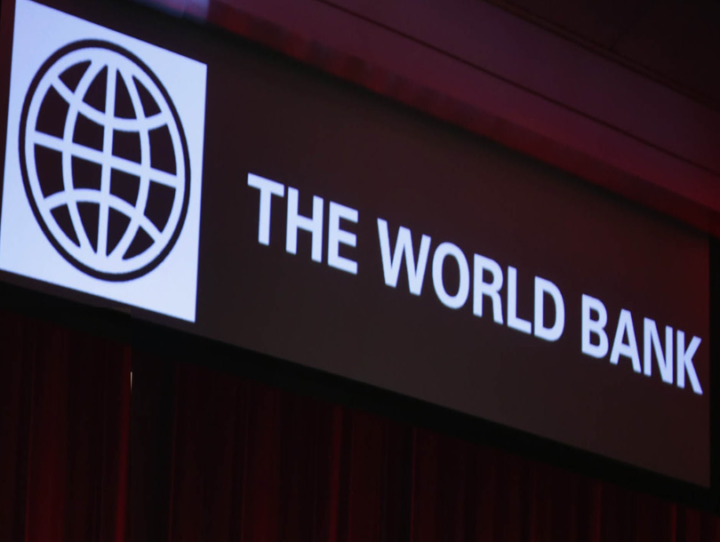Nigeria’s mounting debt and inadequate fiscal management practices have contributed to an upsurge in poverty, as reported by Olufemi Aduwo, Chairman of the CSO-African Countries Group of the World Bank. In 2022, Nigeria’s debt soared to ₦77 trillion, with the debt-to-GDP ratio ballooning from 17.7% to 37.3%.
Fiscal mismanagement, a lack of adherence to the Fiscal Responsibility Act, and a lack of fiscal restraint have all played a part in this debt crisis. The government’s borrowing activities often extend beyond capital investment and human development.
Mr. Olufemi Aduwo, the Permanent Representative of the Centre for Convention on Democratic Integrity (CCDI) to the United Nations Economic and Social Council (ECOSOC) and Chairman of the CSO-African Countries Group of the World Bank, Civil Society Policy Forum (CSPF), made these comments following his recent participation in the World Bank/IMF meeting held in Morocco.

He stated that academic research might suggest that increased borrowing leads to a higher GDP and household income. Still, in Nigeria’s case, this has not been substantiated by statistics or the visible effects on the population. The surge in government debt and loans has resulted in increasing poverty, which can be directly attributed to Nigeria’s poor fiscal management.
In his words, “The fiscal management in Nigeria is quite appalling, leading to the overall detrimental effects of rising poverty levels. This has become increasingly apparent from both statistical data and the suffering of the masses.”
He further added that over 80% of Nigeria’s revenue is spent on servicing debts, leaving only a meager 20% for other critical sectors such as health, education, security, infrastructure, agriculture, social welfare, and more.
Aduwo identified various factors contributing to Nigeria’s escalating debt crisis, with fiscal mismanagement being the most significant. He pointed out that the Nigerian government has demonstrated a lack of fiscal discipline over the years. The Fiscal Responsibility Act of 2007 clearly specifies that government entities at all levels should only borrow for capital investment and human development. Unfortunately, this legislation has been flouted repeatedly, and efforts to amend ambiguous aspects of the Act have been unsuccessful.
One area of concern is the inclusion of “borrowing for important reforms of major national importance,” a vague and often abused term that increases the government’s borrowing authority. Moreover, there is a lack of strict sanctions to enforce compliance, as oversight agencies like the Fiscal Responsibility Commission lack sanctioning powers and sufficient support.
The current fiscal structure in Nigeria encourages a lack of transparency, accountability, and corruption. Government Audit Reports from the Auditor General’s office are not publicly accessible. Even the National Assembly and the Presidency have largely ignored the lack of transparency in public reports.
Mr. Aduwo emphasized the importance of public audit reports in the fight against corruption. The Fiscal Responsibility Act also requires that borrowed funds be managed in separate accounts to enable proper monitoring and a transparent breakdown of how the debts are utilized. However, in practice, loan proceeds are frequently added to the consolidated funds without a clear public report outlining the capital projects financed by these loans.
Regarding the devaluation of the naira, Mr. Aduwo highlighted that it has been influenced by several factors. One primary cause of naira depreciation is the dwindling supply of dollars into the economy, while the demand for dollars remains constant due to Nigeria’s extensive reliance on imported goods. The depreciation has led to a situation where the naira is cheaper than other currencies, resulting in more affordable exports and costlier imports, thereby discouraging imports.
Nigeria is not only indebted to the World Bank and IMF but also to other sources like China, London, and Paris Clubs. The nation’s total debt stood at $28.04 billion when democracy was reinstated in 1999. This figure dropped to $2.1 billion due to a significant debt relief initiative secured by President Olusegun Obasanjo. However, it increased to $7.3 billion during Dr. Goodluck Jonathan’s presidency in 2015. Under President Buhari, the figure surged by more than 400% to $41.8 billion.
Mr. Aduwo expressed doubts about the possibility of securing such debt relief in the future, considering the country’s current circumstances and for other obvious reasons.
In summary, the rising debt and poor fiscal management in Nigeria have significantly contributed to increased poverty levels. Fiscal mismanagement, a lack of adherence to the Fiscal Responsibility Act, and the inability to enforce strict sanctions have exacerbated the debt crisis. This situation has resulted in over 80% of Nigeria’s revenue being allocated to servicing debts, leaving limited resources for other essential sectors. The depreciation of the naira further compounds these issues, making it vital for Nigeria to address its fiscal management challenges and seek sustainable solutions to manage its growing debt.
Support InfoStride News' Credible Journalism: Only credible journalism can guarantee a fair, accountable and transparent society, including democracy and government. It involves a lot of efforts and money. We need your support. Click here to Donate
